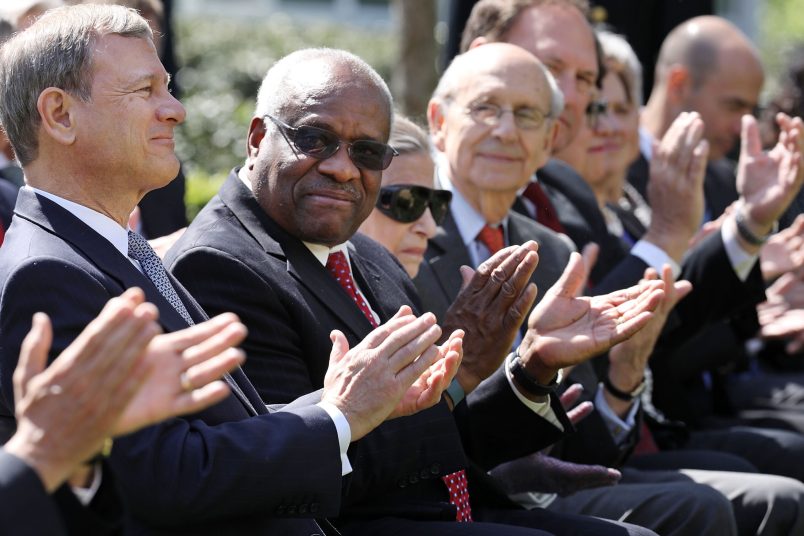The Supreme Court announced Friday that it will decide whether the Trump administration can add a citizenship question to the 2020 census form.
The Supreme Court’s move is the latest dramatic turn in a case that has proceeded in a remarkable way. The Justice Department appealed the decision directly to the Supreme Court — bypassing an appeals court review — because it faces a deadline this year for printing the survey forms.
Arguments in the case will be heard in April.
It’s hard to imagine a case with political stakes much higher. The decennial census determines how political power and government resources are doled out across the country, and an undercount of immigrant communities will skew that power and those resources away from them. Furthermore, there are strong indications that the data a citizenship question would produces will be used by GOP states and localities to exclude noncitizens from redistricting entirely. Such a move would be an electoral boon for red areas of the county, while shrinking the amount of political representation bluer, more urban and more diverse regions receive.
The Supreme Court will take up the decision of a federal judge in Manhattan who blocked the Trump administration from adding the citizenship question. The court’s grant of the Trump administration’s so-called “certiorari before judgment” — meaning a request the justices take it up before an appellate court has a chance to decide the question — is the first grant of that kind since 2004, according to University of Texas law professor Steve Vladeck.
The case is a consolidation of lawsuits brought by the ACLU and a multi-state coalition challenging the inclusion of the question on the census, where it is feared it will spook immigrant participation on the survey.
U.S. District Judge Jesse Furman said in his opinion last month that the Trump administration move was a violation of the Census Act and the Administrative Procedure Act. He stopped short of ruling it a constitutional violation, though other lawsuits making that claim are proceeding.
Furman said the Trump administration’s ostensible reason for adding the question — to assist the Justice Department with Voting Rights Act enforcement — was pretextual, though he could not come to a conclusion on what Commerce Secretary Wilbur Ross’ actual motive was.
The Justice Department had already once secured an extraordinary intervention of the Supreme Court in the case when it was able to convince the justices to block an order from Furman that Ross sit for a deposition. The Supreme Court, however, let a deposition of a top DOJ official and additional discovery ordered by Furman move forward. Over the course of that dispute — as well as an unsuccessful attempt by the Justice Department to get the Supreme Court to delay the trial in front of Furman — the three most conservative justices on the court, Justices Neil Gorsuch, Samuel Alito and Clarence Thomas, hinted that they were likely to rule in favor of letting the question stay on the 2020 Census.
Four votes on the court are required for the Supreme Court to decide to take up a case.







Sucks that the epitaph for the US will be “5-4.”
Are you KIDDING me? This subverting of the Judicial system or ‘court picking’ is pissing me off. I’m SO ready to march on Washington. We’re watching you Roberts…worry about your legacy NOW.
The cold wind blows
in the
Ides of February.
Sounds like the case is already decided.
Here’s my epitaph for democracy in the USA:
1789-2019.
We had a nice run.